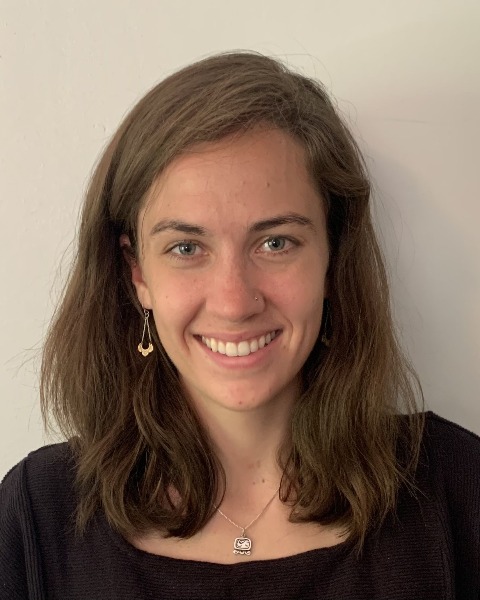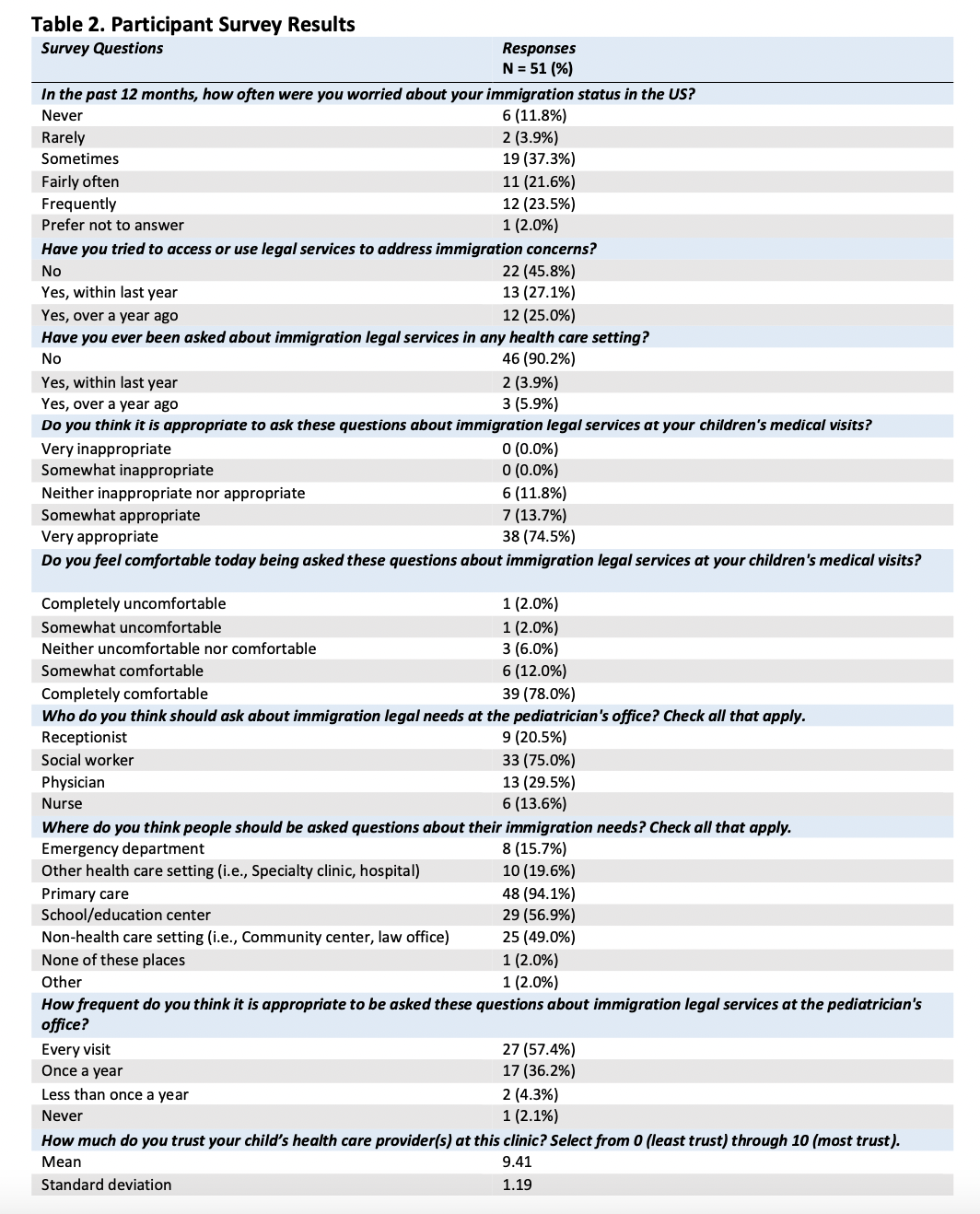Health Equity/Social Determinants of Health
Health Equity/Social Determinants of Health 7
675 - Patient Perspectives on Discussing Immigration Legal Status in the Medical Setting
Publication Number: 675.318

Sophie Kurschner (she/her/hers)
Medical Student
George Washington University School of Medicine and Health Sciences
Washington, District of Columbia, United States
Presenting Author(s)
Background:
Immigration legal status has been widely recognized as a social determinant of health. A medical-legal partnership (MLP) is a collaboration between medical and legal professionals to address legal issues that can contribute to negative health outcomes. Research on MLPs has shown that they improve patient awareness about public health issues and social services. Despite this documented impact, few MLPs have published data on patient feedback on discussing immigration legal matters in the medical setting.
Objective:
The goal of this study was to assess patient/family comfort and acceptability of engaging in conversations about their immigration legal needs in a healthcare setting. We further wanted to gain an understanding about patient/family attitudes towards the incorporation of legal services in a healthcare context.
Design/Methods:
We developed a survey to assess patient attitudes on discussing immigration status and legal needs in a healthcare setting. Survey questions were informed by a literature review of comfort and acceptability with social determinants of health screening tools. The survey was reviewed and edited by an expert panel, and cognitive interviewing was employed with bilingual staff. Individuals 18+ years old (either young adult patients or parents of pediatric patients) were recruited during primary care visits by a bilingual study team member, and surveys were completed verbally in English or Spanish depending on patient/family preference.
Results:
51 participants were surveyed (Table 1). Over 80% of participants reported some level of concern regarding their US immigration status. Nearly half (45.8%) reported never having sought legal assistance for their immigration issues. On a 5-point Likert scale from very inappropriate to very appropriate, most participants (74.5%) shared that they found conversations around legal topics very appropriate to have in a healthcare setting and were completely comfortable (highest rating on a 5-point scale) having these discussions in this context (75.8%). The vast majority (94.1%) identified primary care sites to be an appropriate location for these discussions compared to other health facilities (Table 2).
Conclusion(s):
These results indicate that asking about immigration legal needs within a healthcare setting is acceptable among immigrant communities with legal needs. Primary care centers can be an effective site to collocate these services in their ability to establish trust and comprehensive care. Future research could focus on identifying and measuring patient health outcomes resulting from MLP support..png)

